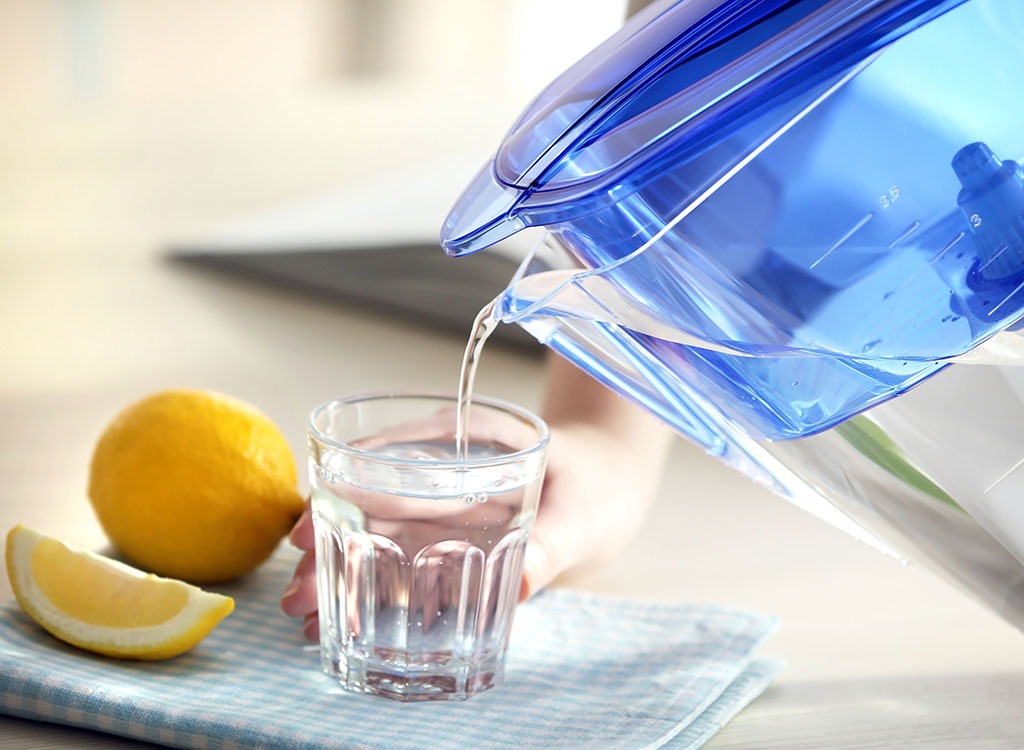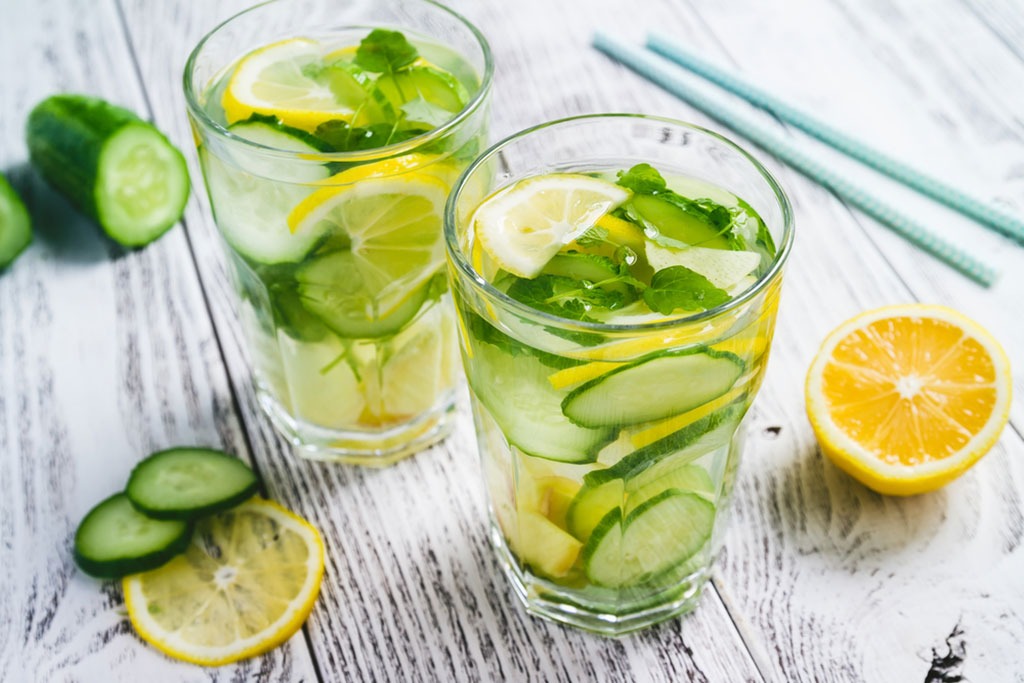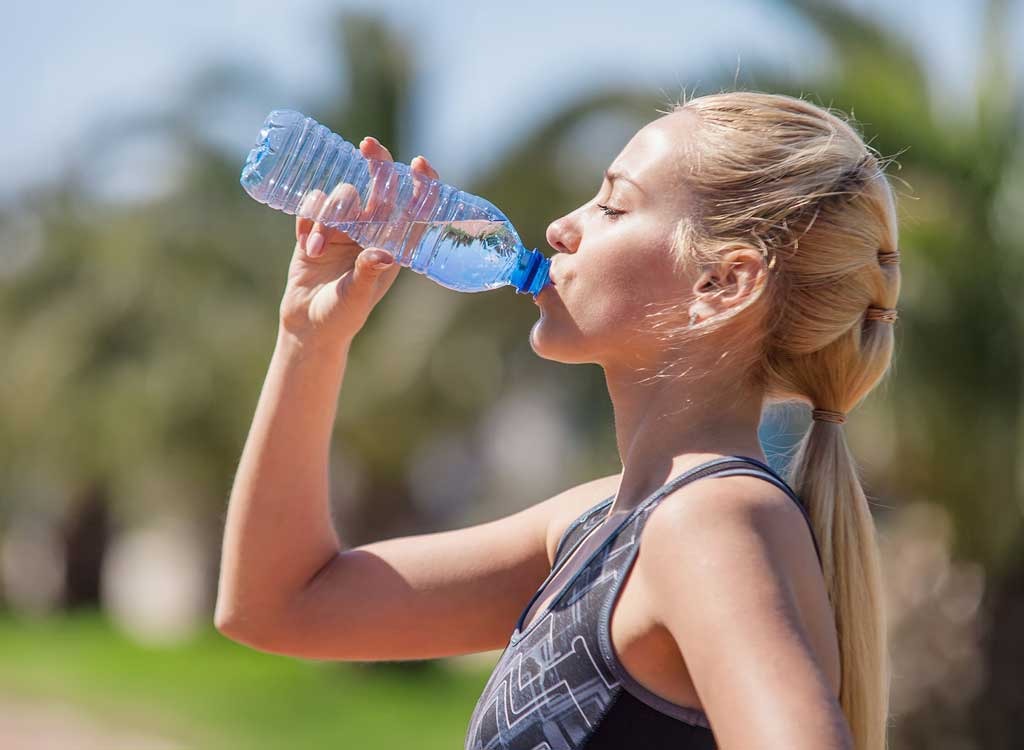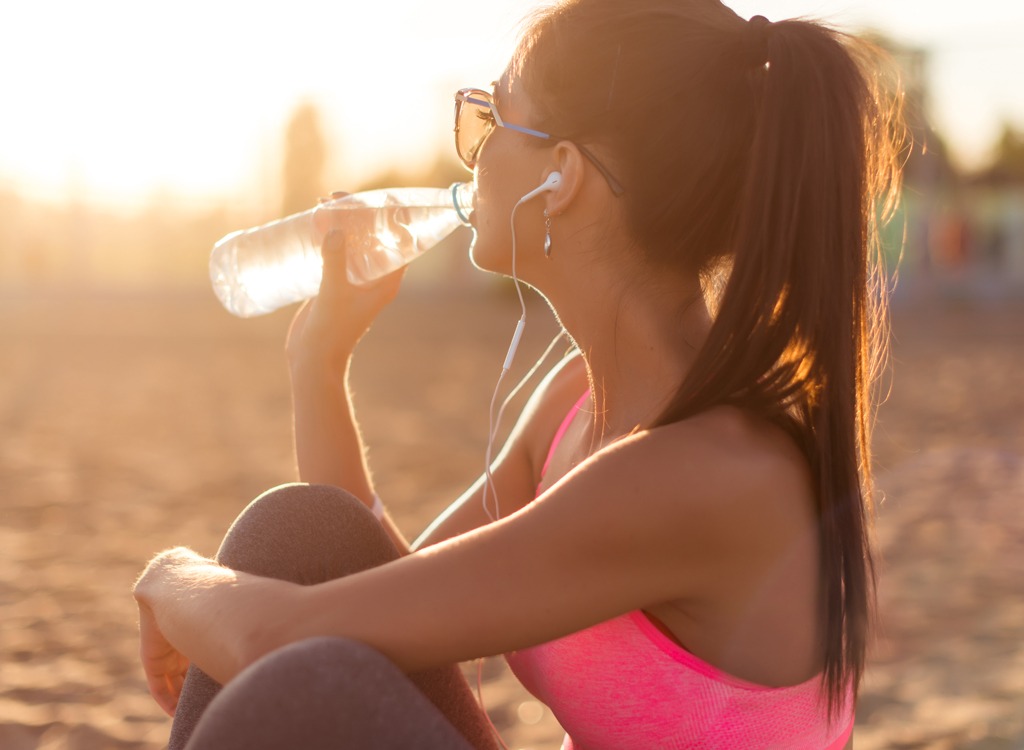The #1 Mistake You're Making Drinking Water

There's no denying it: we're a culture obsessed with food. According to NDP's National Eating Trends study, 20 percent of Americans are on a diet at any given time, funneling billions of dollars a year into the diet industry. However, in the midst of all of our food frenzy, we're overlooking another essential part of losing weight and living healthier: hydration.
According to the CDC, the vast majority of adults are getting less than one-third of their recommended water intake from water itself, with the rest of their daily liquids coming in the form of hydrating foods, soda, and other sugary beverages. Unfortunately, every time we skimp on our water intake, we're missing out on an opportunity to speed up our metabolisms, feel fuller, and improve the health of virtually every part of our bodies, from belly to brain.

Water can do more than just keep you hydrated; H20 is key to maximizing weight loss. Research published in the Journal of Human Nutrition and Dietetics in 2016 reveals that study subjects who drank more water reduced their caloric intake by as much as 206 calories per day and ate less sugar, salt, and cholesterol than their under-hydrated counterparts. While that may not seem like a huge number of calories, over the course of a month, those calories displaced by water can mean a 1.7-pound weight loss, or more than 20 pounds over a year.
The real question is whether or not the wisdom that dictates we need exactly 64 ounces of water every day is actually a magic bullet. While most medical professionals agree that eight glasses of water is a good baseline from which to start, the precise amount you need depends on a number of factors.
"For most generally healthy people, you should drink when you feel thirsty; the right amount is going to be slightly different for everyone," says Dr. Michael O'Brien, M.D., founder of New York's Beacon Primary Care.

For those whose thirst cues aren't so clear-cut, Dr. O'Brien recommends the following gauge: "You should drink enough so that your pee is a pale yellow."
While Dr. O'Brien cautions against turning to sugar-laden electrolyte replacement drinks, he does suggest that athletes with particularly rigorous training programs drink more water than your average sedentary individual, as well as look to healthier ways of replacing some electrolytes. Luckily, a combination of carbohydrates and a little sodium will do the trick, he says.
Although some individuals believe that they have to account for their size when it comes to their water consumption, Dr. O'Brien says that those with extra fat tissue may not need as much extra water as their taller or more muscular counterparts. While your weight itself may not be a clear indication that you need more or less water, if you're noticing sudden changes in your thirst, it's worth mentioning to a professional.
"People should aware that in certain rare medical conditions, such as certain types of strokes or diabetes insipidus, your thirst will not be a good guide and you will, in fact, need a doctor to help plan a safe amount of water for you to drink," says Dr. O'Brien. "And yes, it is possible to drink too much water!

The moral of the story? You're probably not drinking quite as much water as you should be, but listening to your body (and your doctor) can help you make an informed decision about how much is right for you. And, of course, if you're still feeling thirsty after drinking your eight glasses, don't hesitate to pour yourself a little extra H20 — your body will definitely thank you.
While soda and other sugary drinks should be the first things you ditch when you're trying to slim down and get healthier, that doesn't mean it's all water, all the time from here on out. Diversify your drinks while carving out the body you've always wanted by adding the 21 Best Teas For Weight Loss to your meal plan!








